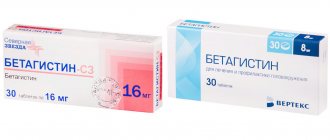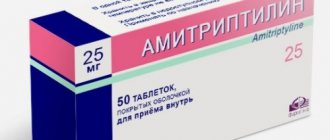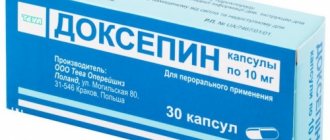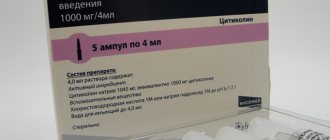In past centuries, people responded to life's adversities much more simply than they do now. Time does not stand still. Constant changes and unstable life situations drive a person into a blind corner. A fairly new drug can help cope with anxiety conditions Lyrics.
Lyrica is a modern drug that belongs to the group of antiepileptic and anticonvulsant drugs. The main active ingredient is an analogue of gamma-aminobutyric acid.
When binding to the subunits of calcium channels of neurons, the drug acts. The active component is able to penetrate barriers and enter breast milk, which prohibits its use during lactation.
A feature of this drug is the development of drug dependence.
Pharmacological properties
The drug Lyrica, which helps with seizures, has anticonvulsant and antiepileptic effects. The drug reduces the release of pain neurotransmitters into the synaptic cleft when neurons are activated. As a result, impulse movement is selectively suppressed during pathology.
Capsules exhibit analgesic properties for pain symptoms of a neuropathic nature, as well as after surgical interventions, for alodynia and hyperalgesia. If the dosage is observed, the medication is well tolerated by patients, and no genotoxic or carcinogenic effects from the active substance were detected.
Dishonesty of medical staff
Unfortunately, in recent years, pharmacies have become more like a transit point for drug dealers. So many medications are used to get a high! Many pharmacists have shown themselves not to be at their best, selling narcotic drugs under the counter without requiring a prescription. The drug "Lyrica", reviews of which from doctors are exclusively laudatory, has become a cheap means of obtaining narcotic intoxication. Due to this state of affairs, doctors have become the subject of close attention from law enforcement agencies. As a result, there was a serious purge of the ranks of medical personnel and pharmacy workers.
Contraindications
Lyrica tablets instructions for use and medical prescriptions should not be taken if:
- lactase deficiency;
- hypersensitivity to Lyrica tablets, which can cause allergies and other side effects;
- Intolerance and malabsorption of galactose;
- children under 17 years of age (due to the lack of knowledge of the drug’s effect on the child’s body).
Caution during therapy must be observed in patients suffering from kidney or heart failure, as well as those who have had a history of drug dependence. These groups of patients, as well as pregnant and nursing mothers, require the strictest medical supervision.
Lyrics
An antiepileptic drug, the active substance of which is an analogue of gamma-aminobutyric (gamma-aminobutyric) acid (GABA).
It was found that pregabalin binds to the accessory subunit (α2-delta protein) of voltage-gated calcium channels in the central nervous system, irreversibly replacing [3H]-gabapentin. It is assumed that such binding may contribute to the manifestation of its analgesic and anticonvulsant effects.
Neuropathic pain
The effectiveness of pregabalin has been noted in patients with diabetic neuropathy and postherpetic neuralgia.
It has been established that when taking pregabalin in courses of up to 13 weeks, 2 times a day, and up to 8 weeks, 3 times a day, in general, the risk of side effects and the effectiveness of the drug when used 2 or 3 times a day are the same.
When taken for a course of up to 13 weeks, pain decreased during the first week, and the effect persisted until the end of treatment.
There was a 50% reduction in pain scores in 35% of patients receiving pregabalin and in 18% of patients receiving placebo. Among patients who did not experience drowsiness, the effect of this pain reduction was observed in 33% of patients in the pregabalin group and 18% of patients in the placebo group. Somnolence occurred in 48% of patients receiving pregabalin and 16% of patients receiving placebo.
Fibromyalgia
A marked reduction in pain symptoms associated with fibromyalgia is observed with the use of pregabalin in doses from 300 mg to 600 mg per day. The effectiveness of doses of 450 mg and 600 mg per day is comparable, but the tolerability of the 600 mg/day dose is usually worse. Also, the use of pregabalin is associated with a noticeable improvement in the functional activity of patients and a decrease in the severity of sleep disorders. The use of pregabalin at a dose of 600 mg/day led to a more pronounced improvement in sleep compared with a dose of 300-450 mg/day.
Epilepsy
When using the drug for 12 weeks 2 or 3 times a day, the noted risk of side effects and the effectiveness of the drug with these dosage regimens are the same. A decrease in seizure frequency began within the first week.
Generalized anxiety disorder
A decrease in the symptoms of generalized anxiety disorder is observed in the first week of treatment. When used for 8 weeks, 52% of patients receiving pregabalin and 38% of patients receiving placebo had a 50% reduction in Hamilton Anxiety Scale (HAM-A) symptoms.
Pharmacokinetics
The pharmacokinetics of pregabalin in the range of recommended daily doses is linear, interindividual variability is low (<20%). The pharmacokinetics of the drug upon repeated use can be predicted based on single dose data. Therefore, there is no need for regular monitoring of pregabalin concentrations.
The pharmacokinetic parameters of pregabalin at steady state in healthy volunteers, in patients with epilepsy receiving antiepileptic therapy, and in patients receiving it for chronic pain syndromes were similar.
Suction
Pregabalin is rapidly absorbed after oral administration on an empty stomach. Cmax in plasma is achieved after 1 hour with both single and repeated use. The oral bioavailability of pregabalin is ≥ 90% and is independent of dose. With repeated use, the equilibrium state is achieved after 24-48 hours. When using the drug after a meal, Cmax is reduced by approximately 25-30%, and the time to reach Cmax increases to approximately 2.5 hours. However, food intake does not have a clinically significant effect on the overall absorption of pregabalin.
Distribution
The apparent Vd of pregabalin after oral administration is approximately 0.56 L/kg. The drug does not bind to plasma proteins.
Metabolism
Pregabalin is practically not metabolized. After taking labeled pregabalin, approximately 98% of the radioactive tracer was detected in the urine unchanged. The proportion of N-methylated pregabalin derivative, which is the main metabolite found in urine, was 0.9% of the dose. There was no evidence of racemization of the S-enantiomer of pregabalin into the R-enantiomer.
Removal
Pregabalin is excreted mainly unchanged by the kidneys. The average T1/2 is 6.3 hours. Plasma clearance of pregabalin and renal clearance are directly proportional to QC.
Pharmacokinetics in special clinical situations
Patient gender does not have a clinically significant effect on plasma pregabalin concentrations.
If renal function is impaired, it should be taken into account that the clearance of pregabalin is directly proportional to CC. Due to the fact that the drug is mainly excreted by the kidneys, in case of impaired renal function it is recommended to reduce the dose of pregabalin. In addition, pregabalin is effectively removed from plasma during hemodialysis (after a 4-hour hemodialysis session, plasma pregabalin concentrations are reduced by approximately 50%), and an additional dose of the drug must be prescribed after hemodialysis.
The pharmacokinetics of pregabalin in patients with impaired liver function have not been specifically studied. Pregabalin is practically not metabolized and is excreted mainly unchanged in the urine, so impaired liver function should not significantly alter plasma concentrations of the drug.
When prescribing the drug to elderly patients over 65 years of age, it should be taken into account that the clearance of pregabalin tends to decrease with age, which reflects an age-related decrease in CC. Elderly patients with impaired renal function may require a dose reduction.
Side effects
The drug "Lyrica", reviews and instructions say this, can cause negative reactions in the body. Side effects that are often observed include:
- drowsiness, impaired attention;
- increase or decrease in libido;
- bloating, erectile dysfunction;
- diplopia, increased appetite, increased body weight;
- dizziness, loss of coordination;
- disorientation, swelling, ataxia, fatigue;
- gait disturbance, memory impairment;
- blurred vision, dysarthria, irritability;
- flatulence, feeling of intoxication, tremor, paresthesia;
- confusion, dry mouth, amnesia;
- increased insomnia, vertigo, imbalance;
- euphoria, vomiting, lethargy, constipation, sedation;
- depression, affective disorders, agitation, anxiety.
Drug price
Depending on the dosage and number of tablets in the package, prices are within the following range:
- Lyrica 75 mg No. 14 from 570 to 650 rubles.
- Lyrica 75 mg No. 56 from 1930 to 2888 rubles.
- Lyrica 300 mg No. 14 from 1000 to 1270 rubles.
- Lyrica 300 mg No. 56 from 3920 to 5000 rubles.
- Lyrica 150 mg No. 14 from 600 to 730 rubles.
- Lyrica 150 mg No. 56 from 2400 to 3100 rubles per pack.
When making a decision to purchase this drug, keep in mind that the drug comes in a capsule form. This means that you won’t be able to buy a higher dose and save money by dividing it. The capsule cannot be opened.
Opinions of patients and doctors
Patients give conflicting reviews about Lyrica tablets. They help some and harm others. The medicine may cause addiction. The drug helps with epilepsy, pain, and convulsions, but it can only be taken in the indicated dosage. The drug Lyrica is also prescribed for the treatment of drug addiction, in particular to ease withdrawal.
If the permissible dose is exceeded, patients' pupils dilate, the person may sway to the sides, and coordination is impaired.
The patient experiences increased arousal, his speech accelerates, and attacks of hysteria and panic may occur. The medicine is addictive if used incorrectly. Tags: pain reliever, anti-seizure, epilepsy
Special precautions.
There are categories of patients and conditions for which the drug must be prescribed with caution:
- History of diabetes mellitus. When using pregabalin, there is a possibility of weight gain by the patient. As a result, the dose of hypoglycemic drugs must be reconsidered.
- Feeling of drowsiness, disturbance of consciousness and psyche, dizziness. These manifestations can cause a fall and, as a result, injury. This applies primarily to older people.
- Impaired visual acuity. Clinical studies revealed evidence of visual impairment, partial loss and blurred images in patients taking Lyrica. When the drug is discontinued, vision is completely restored.
- In combination therapy of epilepsy and relief of seizures together with pregabalin, switching to monotherapy with this drug is prohibited.
- Withdrawal syndrome. The patient should be warned about the development of insomnia, headache, dyspepsia, nervousness and even depression.
- Heart failure (congestive). The drug should be prescribed with caution to elderly patients with heart disease. If alarming symptoms appear, treatment with Lyrica should be discontinued.
- Suicidal tendencies. Some patients have reported suicidal thoughts when treated with Lyrica for epileptic seizures. The mechanism of influence of pregabalin on this condition has not been fully studied, so it is not possible to reject or confirm this fact with 100% certainty.
- Dysfunction of the lower intestine, which manifests itself in the development of constipation. This condition occurs when pregabalin is taken together with opioids. It is necessary to take preventive measures against constipation, especially in elderly patients.
- Drug addiction. There is a need to monitor patients taking pregabalin as symptoms of dependence may develop.
- Lactose intolerance. The drug is not prescribed to patients with this pathology.
Mechanism of action
Pregabalin is an analogue of gamma-aminobutyric acid. Its effect reduces the transport of calcium into neurons, which entails an analgesic effect. In therapeutic doses, this drug is normally tolerated by patients.
During the experiment, it was found that even a doubly exceeded dose does not have a negative effect on the body. Lyrica is toxic to cell structure.
The process of death of the cerebral cortex or cortical atrophy of the brain - what can cause the pathology and what treatment methods exist.
Reduced blood flow can cause the disease peripheral neuropathy of the lower extremities. You can find out whether there are methods of prevention from our material.
Effects on the cardiovascular system
The disorders are quite noticeable:
- Blood pressure rises. Jumps in pressure are possible.
- Heart rhythm disorders develop. First, like tachycardia, then more and more noticeable. For example, group extrasystoles, fibrillations and others.
- Pain in the chest. Burning, pressing and others.
It is necessary to begin treatment for addiction as soon as possible. Because when taking Lyrica, ischemia increases every day. The heart does not receive enough oxygen and nutrients. Consequently, the likelihood of heart attack and coronary insufficiency increases. Possible death from complications.
Analogs
Lyrica has analogues, that is, drugs that have approximately the same properties. It is important to know that similar drugs can only be used after consultation with a doctor. Since the dosage of an alternative remedy must be selected by a doctor. In addition, it is worth considering that there are still differences between the lyrics and analogues.
Comparison of Lyrica with its analogues
| Drugs | Effect when given | Side effects |
| Lyrics | Eliminates anxiety, fears, helps well against epileptic seizures, neuropathic pain. Prescribed for persons over 18 years of age. | Memory problems, trembling, dizziness, etc. |
| Phenibut | Nootorop, saves from fear and anxiety, improves physical condition. Prescribed for children from 2 years of age. | Practically absent, used by athletes. |
| Anvifen | Has anti-anxiety, anticonvulsant effect, nootropic. | Occurs due to individual intolerance to the components |
| gabagamma | an antiepileptic drug, also used for neuropathic pain. Allowed for use in children over 3 years of age. | Shortness of breath, rash, hypertension, mental problems |
| Seizar | Well suited for the treatment of neurological diseases, antiepileptic. Can also be prescribed to 3 year old children. | Rash, headaches, vision problems, dizziness |
| Lamitor | Depression, anticonvulsant drug. If necessary, it is prescribed for children from 2 years of age. The maximum possible analogue of Lyrica | Same as Sezar's |
Taking medications according to the dosage prescribed by the doctor helps to avoid side effects. If you become dependent on Lyrica, it is important to seek drug treatment help.
addictive
You need to realize that the healing of any ailment can result in addiction to the Lyrica product. Reviews of the pill have varied. They cause a lot of controversy both among doctors and between patients. But they continue to be prescribed by therapists.
There are no long-term clinical research studies, therefore there is no clear information about the consequences of long-term healing with the drug “Lyrica”. The fact of addiction to the product is very alarming. After all, then it will be necessary to cure already lyric-dependent patients.











